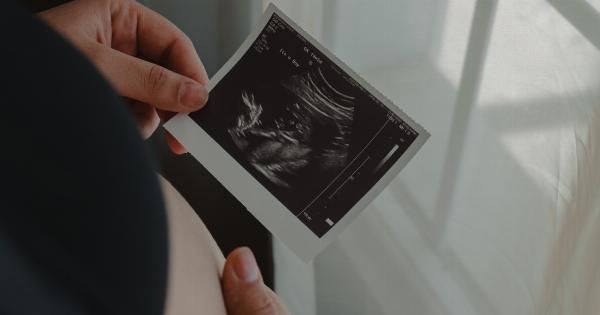Fetal development is a critical time in a baby’s life. It is a period when the fetus undergoes significant growth and development, and proper nutrition is essential for a healthy pregnancy outcome.
A balanced diet with all the necessary nutrients is vital, not just for the mother but also for the growing fetus.
Nutritional Requirements During Pregnancy
A complete and balanced diet is necessary for healthy fetal development. A diet rich in vitamins and minerals is necessary for the fetus to develop normally. These nutrients include:.
Protein
Protein is essential for fetal growth, especially in the second and third trimesters when growth is most rapid. It is essential for cell division and the building of new tissues.
Pregnant women should consume approximately 75-100 grams of protein daily from sources such as lean meats, fish, poultry, dairy, and legumes.
Fats
Fats are essential for the development of the fetal brain and nervous system. Omega-3 fatty acids are particularly important and can be found in oily fish such as salmon.
Pregnant women should consume adequate amounts of healthy fats from sources such as olive oil, nuts, and avocados.
Iron
Iron is necessary for the production of hemoglobin, which carries oxygen to the fetus. Iron deficiency anemia is a common problem during pregnancy and can lead to premature birth and low birth weight.
Pregnant women should aim for 27 milligrams of iron per day from sources such as red meat, poultry, fish, beans, and fortified cereals.
Vitamin A
Vitamin A is vital for fetal growth, bone development, and the health of the eyes, skin, and immune system. Pregnant women should consume adequate amounts of vitamin A from sources such as sweet potatoes, carrots, spinach, and kale.
However, excessive amounts of vitamin A can be harmful to the developing fetus, so supplements should be avoided.
Folic Acid
Folic acid is necessary for the development of the fetal neural tube, which forms the brain and spinal cord. Deficiency of folic acid can lead to neural tube defects, such as spina bifida.
Pregnant women should consume 400-800 micrograms of folic acid daily from sources such as fortified cereals, leafy greens, and citrus fruits.
The Effects of an Incomplete Diet on Fetal Development
An incomplete diet can have significant effects on fetal development. A lack of specific nutrients can cause developmental abnormalities, growth problems, and learning and behavioral problems later in life.
The following are the effects of an incomplete diet on fetal development:.
Intrauterine Growth Retardation
Intrauterine growth retardation (IUGR) is a condition where the fetus does not grow properly in the uterus. It can be caused by a lack of protein, calories, or vitamins and minerals.
IUGR babies are at higher risk for low birth weight and other complications such as hypoxia (lack of oxygen), cognitive impairment, and cerebral palsy.
Neural Tube Defects
Neural tube defects are birth defects that occur when the neural tube fails to close completely during fetal development. They can lead to disabilities such as paralysis, intellectual disability, and bowel and bladder problems.
Lack of folic acid is a significant cause of neural tube defects.
Premature Birth and Low Birth Weight
A lack of adequate nutrition during pregnancy can lead to premature birth and low birth weight, both of which can have long-term effects on the child’s health.
Premature babies are at higher risk for respiratory distress syndrome, developmental delays, and neurological problems such as cerebral palsy.
Cognitive and Behavioral Problems
Nutritional deficiencies during fetal development can have long-term effects on cognitive and behavioral development.
Children who experienced malnutrition in the womb may have an increased risk of cognitive impairment, hyperactivity, and mental health problems later in life.
The Importance of a Nutritious Diet During Pregnancy
A balanced and nutritious diet is essential for healthy fetal development. Eating a variety of foods from different food groups ensures that the fetus receives all the necessary nutrients for growth and development.
Pregnant women should aim to consume a diet rich in protein, healthy fats, and vitamins and minerals. A prenatal vitamin supplement can also help fill any nutritional gaps in the diet.
Conclusion
The effects of an incomplete diet on fetal development can be significant and long-lasting. Nutritional deficiencies can cause developmental abnormalities, growth problems, and learning and behavioral problems later in life.
Pregnant women should aim to consume a balanced and nutritious diet that provides all the necessary nutrients for healthy fetal development.



























